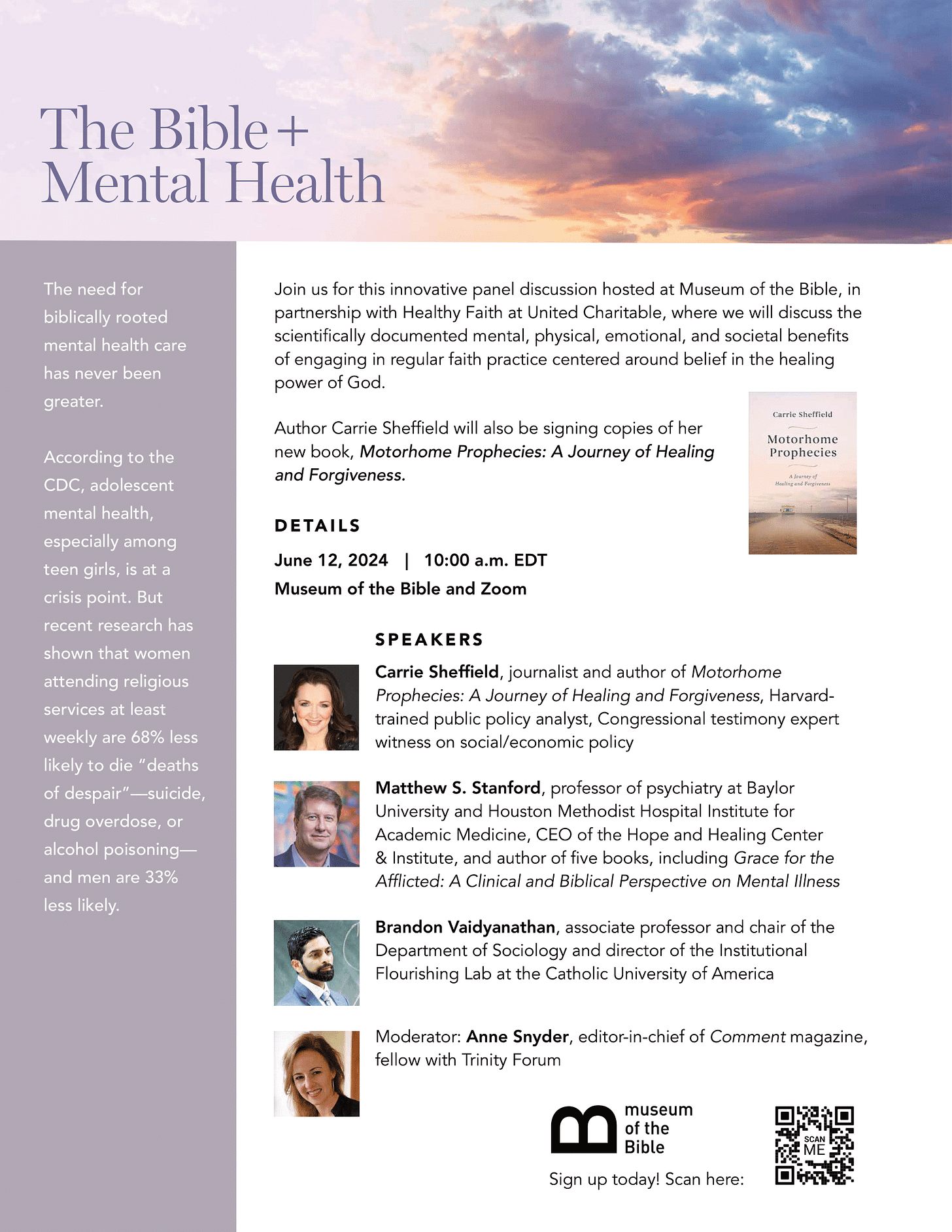Rumination or Redemption? The Future of Mental Health
Sharing Healing Messages Last Week at The Bible + Mental Health Conference at Museum of the Bible
Last week on June 12, we hosted a timely gathering of leaders from Harvard Medical School, Baylor College of Medicine, Liberty University, Catholic University and more at the Museum of the Bible: "The Bible + Mental Health.”
Organized by the team at Healthy Faith, a fiscally-sponsored program of United Charitable, we brought together scholars, clergy, and healthcare practitioners to discuss the powerful connection between faith and mental health. The conversations highlighted compelling scientific evidence showing how spirituality enhances emotional resilience and overall well-being.

One theme arose during the conference: the idea of learned helplessness, or in some cases, patients taking pride in or using their mental illnesses as badges of honor or their identity. We heard from our speakers that this can lead to toxic patterns of rumination and downward spiral because our identity should be rooted in God. The Bible tell us this type of rumination is worldly sorrow and makes a crucial distinction.
2 Corinthians 7:10: “Godly sorrow brings repentance that leads to salvation and leaves no regret, but worldly sorrow brings death. See what this godly sorrow has produced in you: what earnestness, what eagerness to clear yourselves, what indignation, what alarm, what longing, what concern, what readiness to see justice done.”
Special thanks to our host MOTB chief curator Jeffrey Kloha and also to Michael Wear of the Center for Christianity and Public Life and the Trinity Forum for his heartfelt benediction.


We also shared an impactful message from Alissa Thomas-Newborn, a Rabbanit and board-certified chaplain. Watch her powerful words on God’s view of brokenness from the conference below:
Thank you for joining us on this meaningful journey. Stay tuned for more insights and upcoming events from Healthy Faith! 🌟
Best regards,
Carrie




